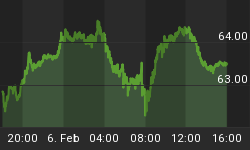Jamie Dimon, JP Morgan Chase
Brian T. Moynihan, Bank of America
Michael Corbat, Citigroup
Gentlemen:
On Friday, I attended a digital money summit at the Consumer Electronics Show. I am writing to you to warn you about the disruption that is about to occur in banking. There are many startups (and larger companies too) that are gunning for you. Perhaps you have watched what Uber has done to the taxi business? Well, these guys are planning the same thing for the banking business.
Banks used to allow even a child with a $10 deposit to spread his risk across a large portfolio of loans. At the same time, banks made it possible for a corporate borrower to raise $10,000,000 from a large group of depositors. In short, the banking business is investment aggregation and risk management.
That business cannot be disrupted. The bigger it gets, the more difficult to displace. It's like eBay, all the depositors come to the bank because that's where they can earn interest. All the borrowers come, because that's where they can get the money they need. The bigger the bank gets, at least in a free market under the gold standard, the safer it is for depositors.
Today, however, you are quite vulnerable to disruption. That's because you are not really in the banking business any more.
Over three decades, you have worked with the Federal Reserve to eliminate interest. The end result is that you now offer depositors a return-free risk. Depositors cannot earn interest in a bank account (yes, I know that in the US the yield is technically not zero yet, but it's getting there). However, a growing number are aware of the risks. For example, you have incalculable exposure to derivatives. You own sovereign debt which the world now knows is not risk-free. In fact, you have a large staff and churn through a lot of activity in order to deliver scant yield to your depositors.
I can tell you what I observed in the digital money program. People, especially Millennials, now think of banking in terms of features like ATMs, payment clearing, fraud prevention, and point of sale solutions. However, these are just add-on services, not the core of banking. You have abandoned that core, and only the add-ons remain.
Startups can take these businesses. They have lower costs. They are more focused. They have hip new brands, untainted by the financial crisis and the bailouts. They have developed an array of new technologies. And, of course, they are less regulated (before you think to lobby to impose more regulation on them, think about that taint to your brand).
You're in a tight spot. After decades of smoking the drug known as falling interest, you're now dependent on it. The thought of a return to a 5% yield on the 10-year Treasury is not pleasant. Nevertheless, I urge you to think about it. The alternative is to let the fintech disruptors carve up your retail business.
Sincerely,
Keith Weiner, PhD
The Gold Standard Institute















